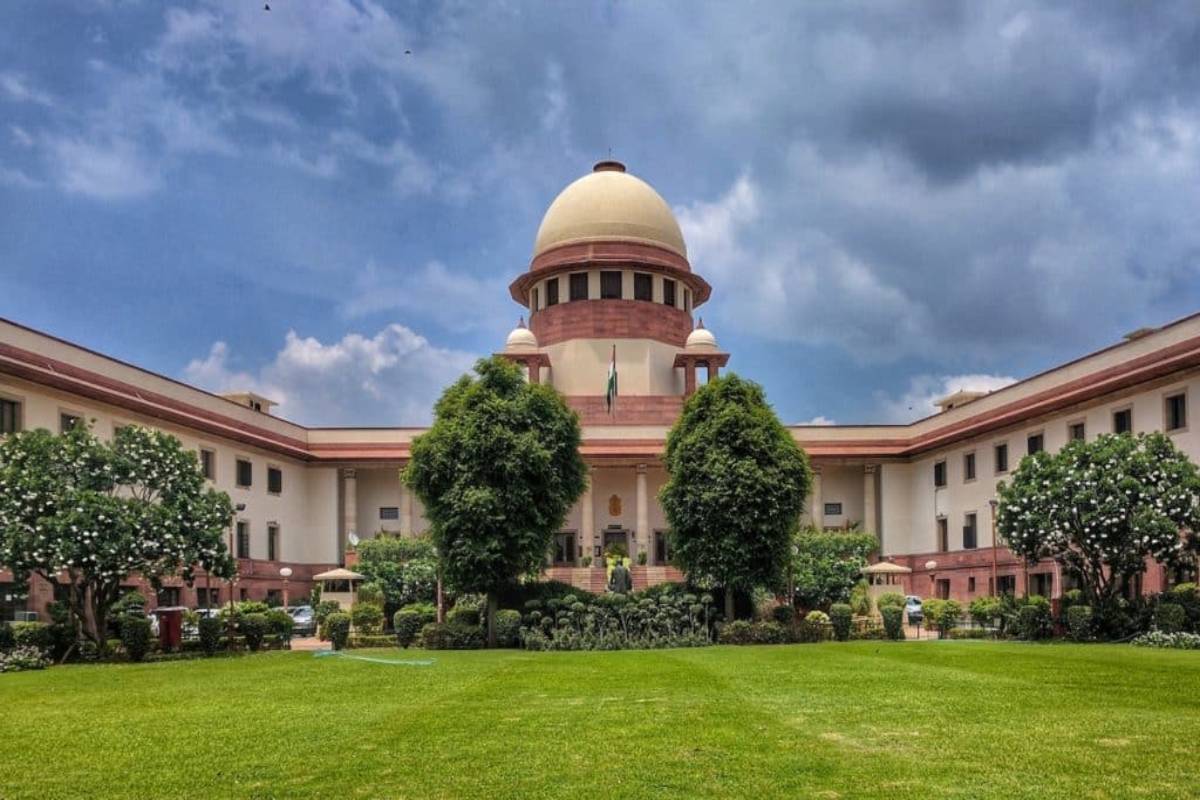SC seeks number of FIRs registered in instant triple talaq cases
Triple talaq ceased to exist on August 22, 2017, when the Supreme Court declared it void.
The Supreme Court on Wednesday was told that Article 370 of the constitution that conferred special status to Jammu & Kashmir could not have been abrogated and the state’s status into two Union Territories could not have been changed without ascertaining the will of the people of the state.

[File Photo]
The Supreme Court on Wednesday was told that Article 370 of the constitution that conferred special status to Jammu & Kashmir could not have been abrogated and the state’s status into two Union Territories could not have been changed without ascertaining the will of the people of the state.
A five-judge constitution bench comprising Chief Justice D Y Chandrachud, Justice Sanjay Kishan Kaul, Justice Sanjiv Khanna, Justice B R Gavai and Justice Surya Kant was told that the abrogation of Article 370 and the bifurcation of the state into two Union Territories changed the representative democracy in the state and replaced it with executive control.
Advertisement
Appearing for one of the petitioners challenging the abrogation of Article 370 and the Jammu and Kashmir Reorganisation Act, 2019, senior advocate Kapil Sibal told the constitution bench that after dissolving the J&K assembly, Parliament cannot arrogate to itself the will of the people of the state represented by the state assembly.
Advertisement
Taking the constitution bench through the history of J&K prior and post its accession to India, and the constitutional provision of both of the Indian and J&K constitution, Sibal said that no change in the provisions governing the State and its status could have been changed without ascertaining the will of the people vested in the State assembly.
Telling the court that Article 370 was abrogated and state was bifurcated into two UTs within two months of the holding of parliament election in May 2019, Sibal said that in the last five years no state elections have been held so far.
“Fourteen million people now have no role to play in their own fate,” Sibal told the constitution bench.
Recalling the sequence of events and stating that the process that was followed for abrogating Article 370 and the bifurcation of the state into UTs was not legal, Sibal said that first the J&K state assembly was placed in a state of suspended animation and President’s Rule imposed. Thereafter parliament acting both as a state legislature and the constituent assembly abrogated Article 370, he said.
“No Parliament can convert itself into a constituent assembly,” Sibal said, pointing out that if this was allowed, it would have serious implications for the future of our country.
“Can Parliament say we are the state legislature and the constituent assembly? Under what provision of the law? It is an exercise of political power without reference to Article 370”, Sibal said in a poser.
Some of the petitioners have sought the restoration of status that the hill state had before the abrogation of Article 370 – the “temporary” provision of the Constitution.
Sibal argued that this was a temporary provision before the JK constituent assembly met and finalised its own Constitution. However, it became a permanent feature after the constituent assembly finished its task of framing a separate Constitution for the state.
Sibal told the bench that under the J&K constitution all the residuary powers were with the State, which are otherwise normally vested in the Central government.
Under the accession treaty, the Central government handled defence, communication and currency and any other subject only with the consultation or concurrence of the J & K government.
Under 370, the state could also enact its own laws and make special provisions to protect its own citizens by instituting restrictions on non-domiciles buying land in the state. Children of local women marrying men from outside were also denied inheritance and succession rights in the state. Article 35A has also been done away with.
A number of petitions are pending before the top court challenging the scrapping of Article 370 of the constitution and bifurcating the state into two Union Territories.
On August 5, 2019, the Central government announced the revocation of the special status of Jammu and Kashmir granted under Article 370 and split the region into two Union territories.
Besides individual petitioner who have approached the top court on the abrogation of Article 370 and the bifurcation of the State reducing it to a Union Territory, other petitioners include Jammu and Kashmir Peoples Conference, Jammu and Kashmir High Court Bar Association, Peoples Union for Civil Liberties, and the We4st Pakistan Refugees Action Committee Cell – 1947.
Advertisement